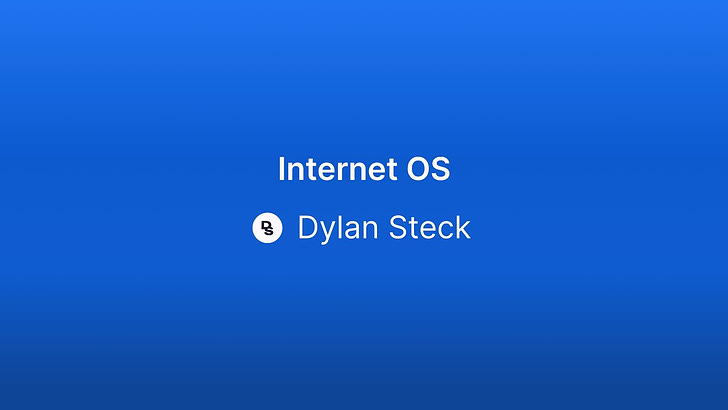Internet OS
How the Internet will become a part of the operating system and what that looks like.
For the first time I’m publishing a video essay — it captures the essence of a talk I’ve been giving to many people about my views on the Internet and operating systems. Have any questions about the content or comments on the format? Get in touch!
Our menu bars are shrinking and the browser is eating the desktop. Instead of using apps in different windows, people use web apps in different browser tabs.
The operating system used to be the home for our digital lives — we cared deeply about how we styled the desktop, stored items in folders, chose our favorite apps, and became familiar with how system-wide functions worked. It may not have been a perfect set up, but everything you did existed in one place that you could make your own.
As our lives moved from the desktop to the Internet, the interfaces we used didn’t change to reflect this shift. People have no central identity or homepage on the Internet or in their browser that is the root of everything they do. It’s up to the individual to create their own workflows, which are often imperfect and require hacks. In addition, people have a hard time using multiple web apps because each app has its own set of rules and functions that it abides by, instead of system-wide controls that users can become familiar with and that let data from different apps interact.
I’ve always dreamed of a new operating system that treats Internet data as first-class citizens, the same way it does for files. What if the key elements and data on a webpage were apart of the operating system — something you can change and re-use? You can run any function globally on data matching a type, not the functions the app has for it(eg. all text have the same text functions, all spreadsheets have the same functions, all feed etc).
Imagine this operating system as a tool that gives you built-in read and write access to the Internet. Instead of us living our lives in multiple apps, we grab the data we need from different apps as part of the operating system and organize tasks or spaces we want to work in. We can define how we want data to look and what data we want, we can run controls or set rules because all of the rules are built directly into the operating system, and anyone can build on the data that exists without learning to code.
Not only could such native integrations make it easier for people to get things done, but it could also bring a new wave of personalization back to the Internet — something that’s been missing since at least the MySpace days. If we think about the Internet as a data source and the screen as a canvas that anyone can build on, even if you don’t know how to code, then anyone can build anything and express themselves however you want. What we use “on the Internet” can be much more specific to our needs, and much more expressive of our beliefs and aspirations.
Want to talk about the next Internet OS or help me build it? Drop me a line!




I’m actually wondering if Google tried exactly that: bringing the OS online.
Organizing all your docs, curating your tabs and bars, creating reading lists and communicating with collaborators... still not composable on the app-level but at least somewhat similar to the customization of the desktop.